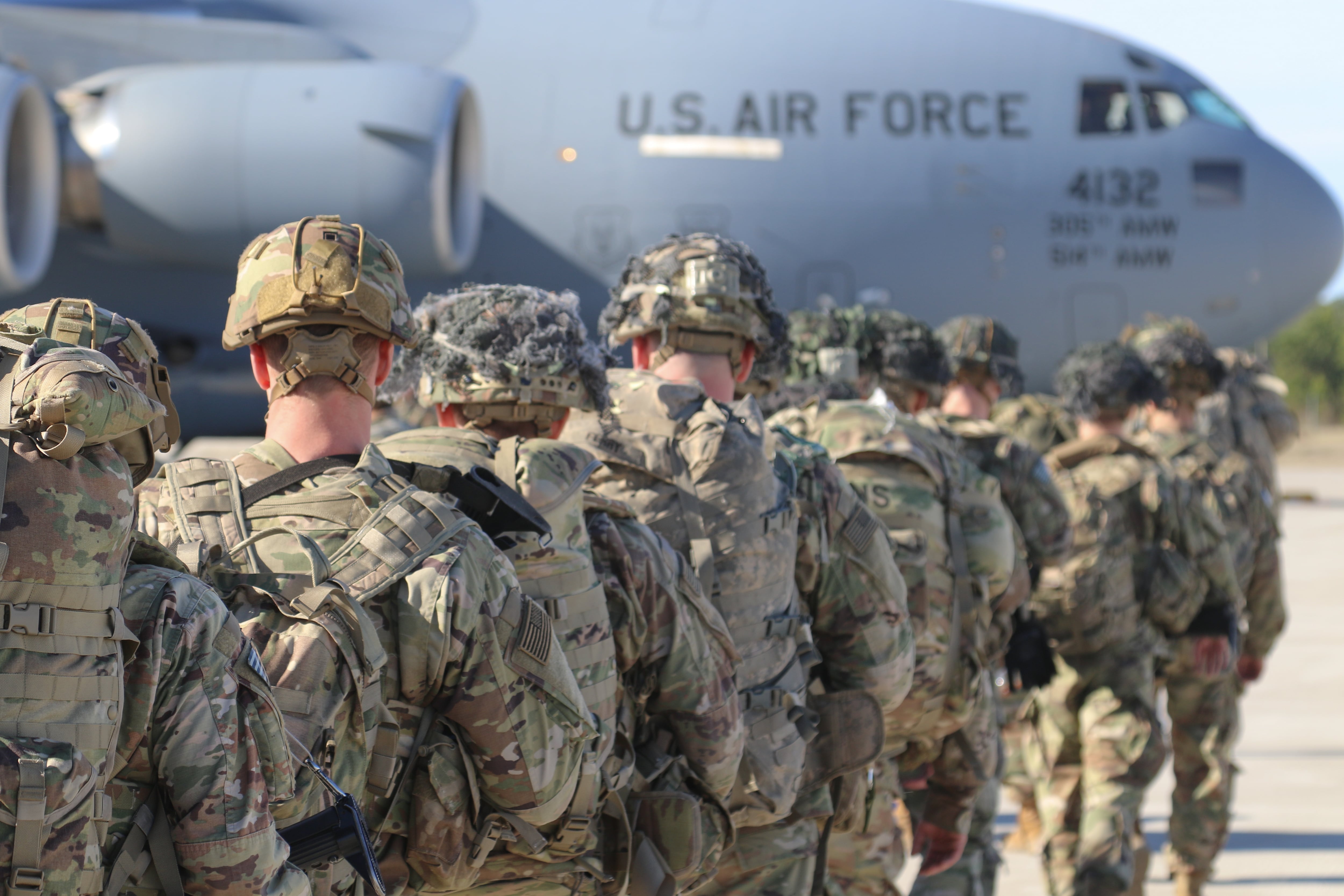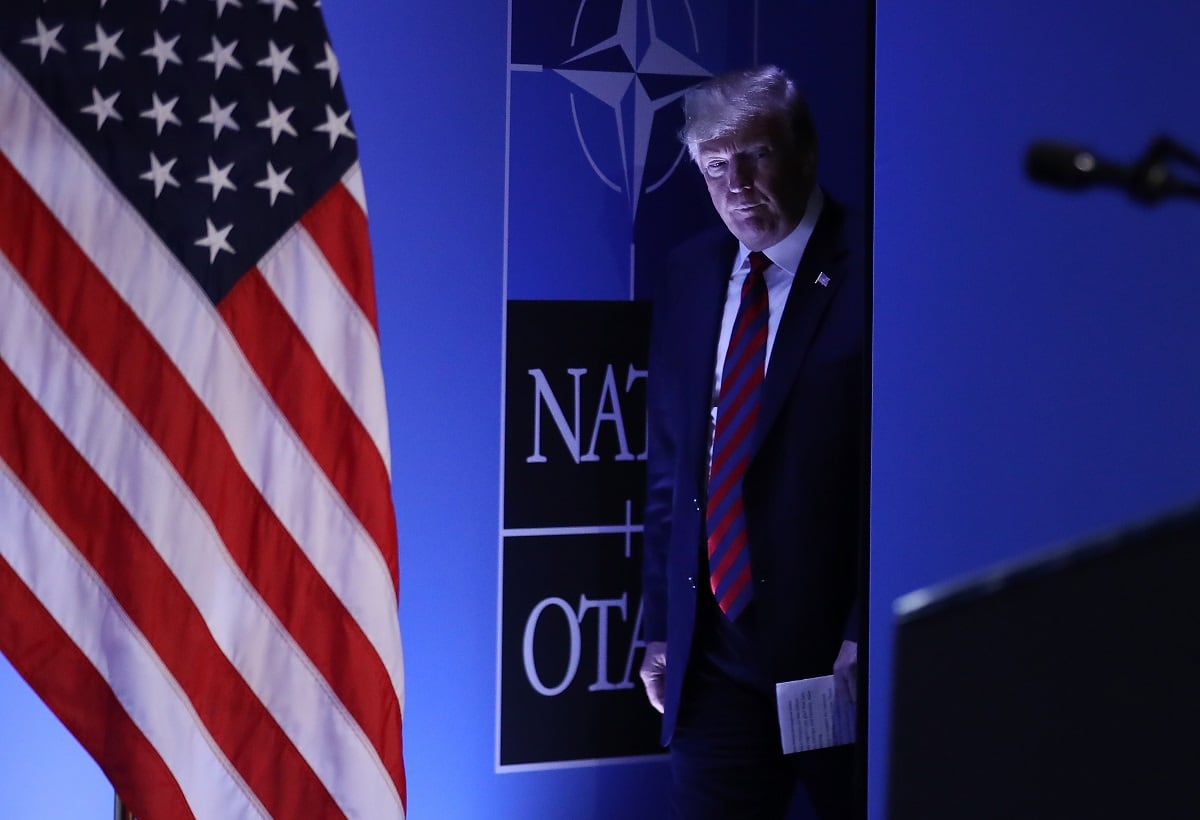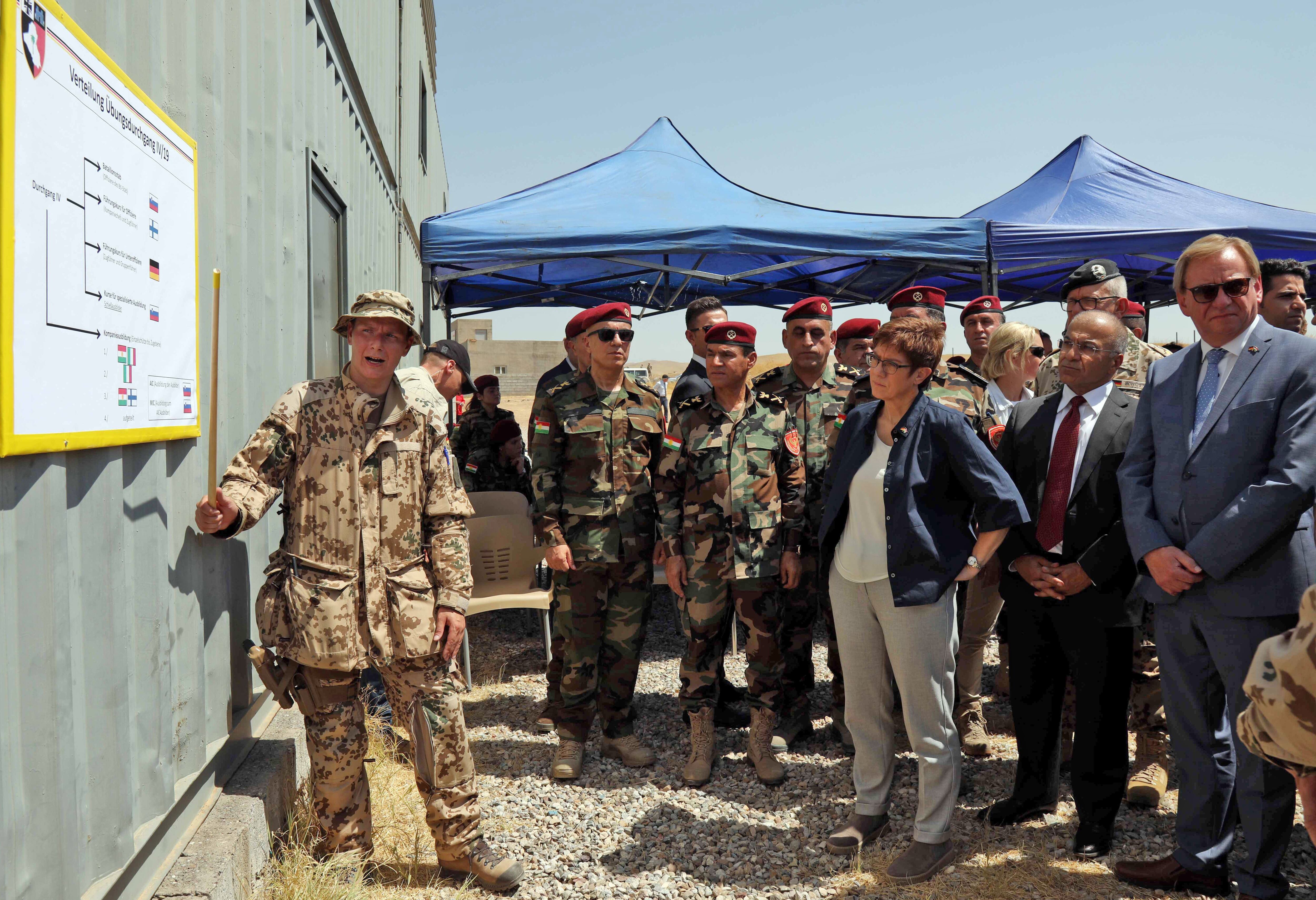COLOGNE, Germany — With the immediate risk of a U.S.-Iran war averted, new disputes are brewing between the United States and Europe about managing the fallout.
By Wednesday morning, Iran’s strike against U.S. bases in Iraq had failed to ignite a full-out war because no Americans were hurt. The attack followed the killing of Quds Force leader Maj. Gen. Qassem Soleimani in a U.S. drone strike, which Washington officials have tried to frame as an act of self-defense.
President Donald Trump seemed intent on taking the apparent de-escalation to the bank as a foreign policy victory during a midweek White House address. But he wanted concessions from Europe.
The work week ended Friday with officials in Brussels having rebuffed Trump on one demand outright — that Europe should abandon the Iran nuclear deal — while buying time on another: a greater role for NATO in “the Middle East process,” as the president phrased it.
Coming out of an emergency session of foreign ministers, European Union chief diplomat Josep Borrell told reporters Friday evening that the bloc would strive to uphold the nuclear accord with Iran so long as the country returns to its obligations.
“It is clear that we are in a completely different position from the United States,” Borrell said.
At the same time, he allowed that differences between the remaining treaty parties could at some point become so irreconcilable that the accord would die and United Nations sanctions against Iran would go back into effect.
RELATED

The United States withdrew from the deal in May 2018, fulfilling a Trump campaign promise of nixing what he considered an ineffective attempt at denying Iran nuclear weapons. The Europeans, most notably France, the United Kingdom and Germany, have held on to the pact’s promise, arguing its provisions for keeping close tabs on Tehran’s atomic activities are the most certain means for preventing nuclear proliferation.
Iran for its part has abandoned several of its commitments under the pact. Following the Soleimani killing on Jan. 3, the regime announced it would no longer adhere to a limit of installed centrifuges needed for enriching uranium.
While that step may seem like a keen escalation, it could quickly be reversed, especially because Iran has upheld the monitoring and verification regime included in the deal, said Kelsey Davenport, an analyst with the Washington-based Arms Control Association.
With oversight by the International Atomic Energy Agency still apparently intact, “any dash to the bomb would be quickly detected,” Davenport argued.
“Europeans view the nuclear deal as a significant foreign policy achievement,” she said. At the same time, Europeans could come to rethink their stance if Iran continues to test the limits, she added.
RELATED

Besides the Iran deal, the suddenly fragile ground for cooperation with Iraq in the fight against the Islamic State group is occupying the minds of European leaders. That is because Baghdad seems poised to throw foreign troops — stationed there to push back ISIS and train local forces — out of the country following the American drone strike that also killed an Iraqi militia leader.
“Iraq is our most important concern,” Borrell said, noting that EU members have built “an association” with Baghdad that permeates not only security cooperation but also economic ties.
That is, presumably, where Trump wants the European NATO members to step up.
The alliance already manages a training mission in Iraq, but NATO could do more, Secretary-General Jens Stoltenberg acknowledged in a news conference on Thursday when asked about the U.S. president’s push.
But he demurred on details, hinting only that NATO has the requisite command structure for larger missions. “We already do a lot,” Stoltenberg said, referring to the alliance’s fight against ISIS. “I welcome the fact that now we are looking into what more we can do.”
RELATED

His comments come as nations contributing forces to the counterterrorism fight in Iraq try to make sense of their military commitments among a changing playing field.
German Defence Minister Annegret Kramp-Karrenbauer stressed in comments to reporters this week that the Iraqi government’s invitation is a cornerstone of the German parliament’s mandate to send any troops at all. Amid the uncertainty, dozens of Bundeswehr soldiers have already left the country, though officials have said the armed forces are ready to return to normal operations when circumstances allow it.
“Stoltenberg is trying to buy time,” Christian Mölling, an analyst with the Berlin-based German Council on Foreign Relations, told Defense News when asked about what more NATO could do in Iraq. “The idea of forcing a decision now as everybody is thinking about leaving, even if only temporarily, would be dead on arrival in the capitals.”
At the same time, the White House likely will continue to press for European answers on relieving U.S. troops in the region, he added.
Sebastian Sprenger is associate editor for Europe at Defense News, reporting on the state of the defense market in the region, and on U.S.-Europe cooperation and multi-national investments in defense and global security. Previously he served as managing editor for Defense News. He is based in Cologne, Germany.








